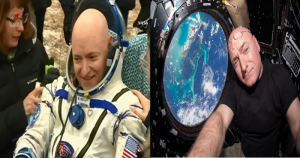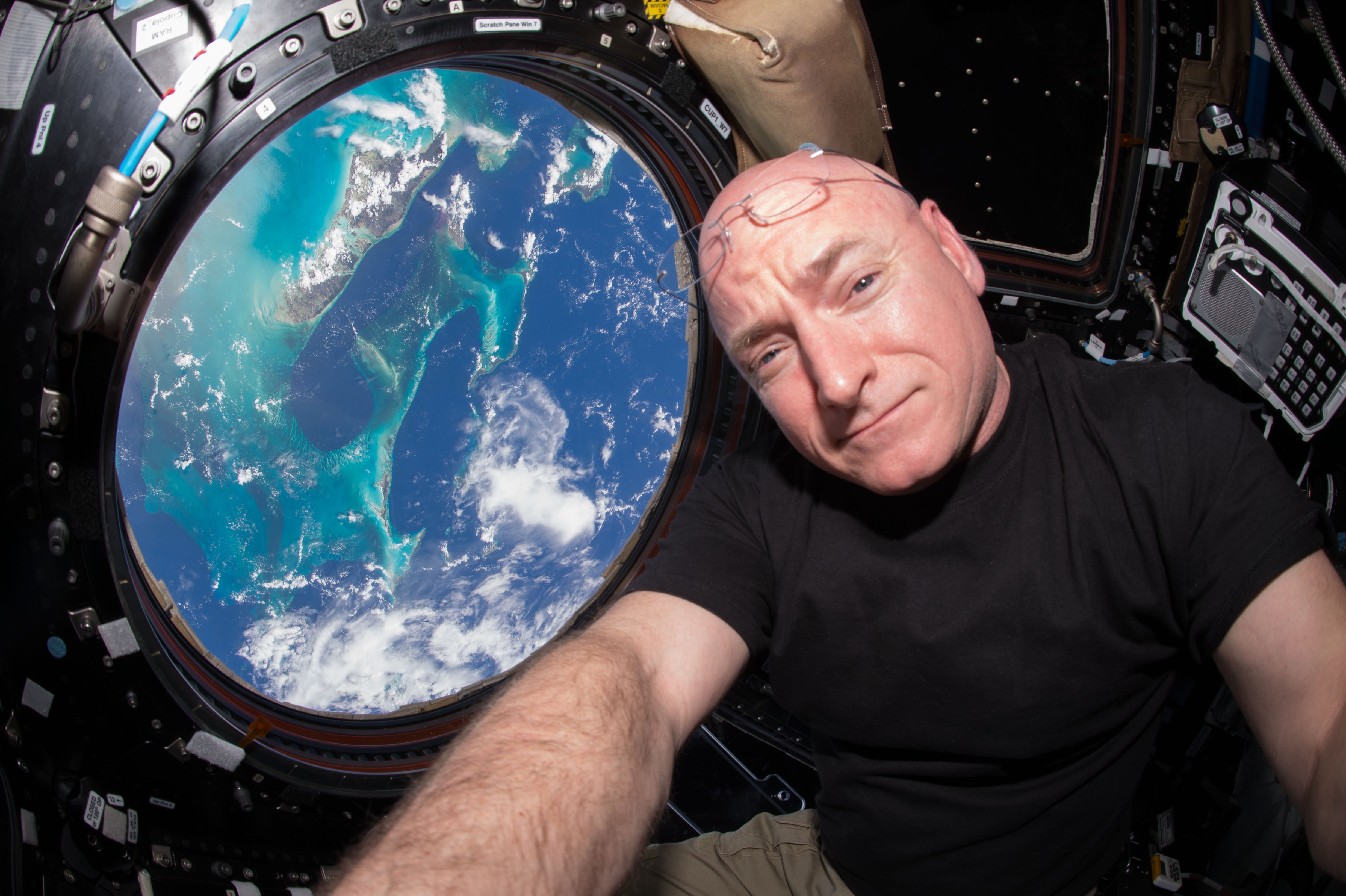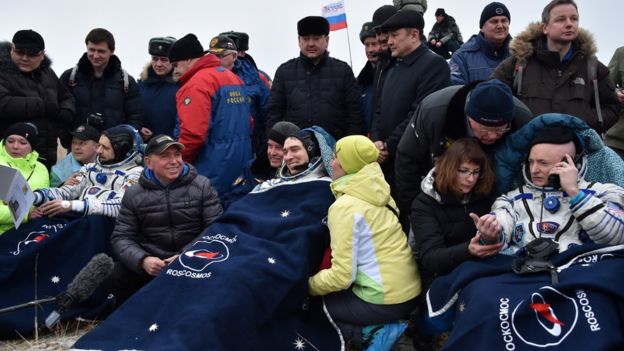
NASA Astronaut Scott Kelly Returns Safely To Earth After A Year in Space
After nearly a year on board the International Space Station (ISS), NASA astronaut Scott Kelly landed safely in Kazakhstan on March 1st at 11:26 p.m. Eastern time, having completed 340 days in space. A Russian Soyuz capsule brought Kelly and two of his fellow Russia crew members home, a seven-hour-trip.

This mission, however, was not about breaking records. It was a science experiment to study the effects of microgravity on the human body, so that NASA can prepare astronauts for longer flights to Mars and beyond. Their 340-day mission aboard the International Space Station (ISS) is twice the length of a normal stay.
Kelly and fellow One-Year Mission participant Mikhail Kornienko will undergo field tests to see how well the two astronauts are doing as they return to Earth. Living in microgravity for longer than six months can change the body’s circulation and disturb a person’s sense of balance, making it difficult to re-adjust to gravity again. Kelly and Kornienko have been using different tools in space in an attempt to attenuate these changes.
During the field tests, NASA and Russia’s Roscosmos will have the astronauts perform activities, like climbing ladders and standing from a sitting position, to see if these countermeasures worked. “We go through about an hour of field tests of various kinds – one is even like an obstacle course, where you run around, stand up from a sitting position and jump,” Cmdr Kelly said.

Soon Scott Kelly will be headed back to Houston, Texas, where he will continue to undergo testing for the One-Year Mission. Kelly’s twin brother, Mark, will serve as a point of comparison for the study. During the mission, both Scott and Mark regularly took samples of their blood, saliva, stool, and urine for testing. Scientists will continue to analyze the samples, looking for signs of inflammation, DNA damage (and cellular aging), and changes in the microbiome (the colonies of gut bacteria that aid in our digestion).
Researchers will continue to take Kelly’s samples for up to a year to see how his body readjusts to Earth. NASA doctors are also hoping to learn about the impact space radiation has on body cells, and how bodily fluids shift over the course of a long mission.
“While scientists will begin analyzing data from Kelly and Mikhail Kornienko as soon as they return to Earth, it could be anywhere from six months to six years before we see published results from the research,” NASA reports on its website.